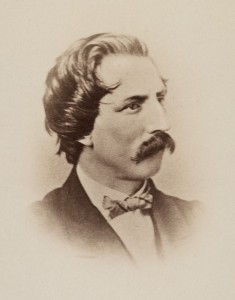President’s Message
By Jerry Zezima
President
National Society of Newspaper Columnists

Jerry Zezima
Leave it to Mark Twain to have the best take on April Fools’ Day. In “Pudd’nhead Wilson’s Calendar,” he wrote, “This is the day upon which we are reminded of what we are the other 364.”
Before he became “the Lincoln of our literature,” as critic and good friend William Dean Howells called the man born Samuel Clemens, Twain was a newspaper columnist.
He wrote for the Virginia City Enterprise in Nevada, where he began his career and would soon become known as America’s greatest humorist.
But even the best have their role models. Twain’s was Charles Farrar Browne, a humor columnist who wrote under the pen name of Artemus Ward.
Ward used the unorthodox spelling and mangled grammar then popular among newspaper humorists and sprinkled his copy with puns, non sequiturs and pearls of wisdom that earned him fame from coast to coast.
Born in Maine in 1834, Browne was a printer’s apprentice who made his way to Ohio and got a job with the Cleveland Plain Dealer, where in 1858 he created the character of Artemus Ward, an itinerant showman who became so popular that Browne adopted the name as his own.
Ward’s biggest fan was President Abraham Lincoln. One day in 1862, Lincoln called a Cabinet meeting. Before starting, the president read aloud “High-Handed Outrage at Utica,” a piece in Ward’s first collection of columns.
Lincoln laughed through the entire reading while the members of his Cabinet sat stony-faced.
“Gentlemen, why don’t you laugh?” Lincoln asked when he had finished. “With the fearful strain that is upon me night and day, if I did not laugh I should die, and you need this medicine as much as I do.”
Lincoln then produced what he called “a little paper of much significance.” It was the Emancipation Proclamation.
“If reading a chapter of Artemus Ward is a prelude to a deed such as this,” said Secretary of War Edwin Stanton, “the book should be filed among the archives of the nation and the author canonized.”
Ward was indeed the country’s premier print humorist. But what he did next was unheard-of: He became a funny public speaker.
Up to that time, the lyceum circuit featured stuffed shirts of all stripes, including poets, college professors and religious leaders who practically put audiences to sleep with their deathly serious lectures.
Ward lampooned them. At first, people who had expected to see the tubby, middle-age showman of Ward’s pieces were puzzled by what they got instead — a thin, mustachioed young man who shuffled out on stage and convulsed them with his merry wit and deadpan delivery.
In addition to being America’s most successful newspaper columnist, Artemus Ward had become the first stand-up comic.
He realized the value of using his writing to launch a speaking career, which made him even more famous. If radio, television and the Internet had existed, Ward probably would have conquered them, too.
In 1863, Ward gave a speech at Maguire’s Opera House in Virginia City. Mark Twain and the rest of the Enterprise staff attended. Afterward, Ward treated his new buddies to dinner and drinks.
Around midnight, Ward, Twain and a columnist named Dan De Quille took a drunken rooftop tour of Virginia City that ended only when a constable threatened to shoot all three of them with a shotgun loaded with rock salt.
After Ward left, Twain decided to emulate his hero, who was just a year older, and embarked on a speaking career of own. It would last far longer than that of Ward, who continued to write columns and entertain audiences on both sides of the Atlantic.
Ward went to England in 1866 and was the toast of London, writing for Punch by day and speaking in sold-out theaters at night. Unfortunately, his health failed halfway through his tour. On March 6, 1867, Artemus Ward died of tuberculosis at age 32.
Mark Twain went on to have the greatest career of any American writer who began as a newspaper columnist. But he and the rest of us owe a debt to the man who, a century and a half ago, was journalism’s original multimedia star.
• • •
Jerry Zezima is a syndicated humor columnist for his hometown paper, The Stamford (Conn.) Advocate.
This column first appeared in The Columnist member newsletter of the National Association of Newspaper Columnists.


